
Writer

Director

Director
Story about two restaurant critics, whom write articles under fake names.

Screenplay
Story about two restaurant critics, whom write articles under fake names.

Screenplay
1942. Owing to a stolen mink coat, Süti, the young poet and journalist, gets acquainted with Katalin, the idolated singer. Before being drafted to labour service, he shows the actress the song he composed for her, entitled Smouldering Cigarette.

Director
1942. Owing to a stolen mink coat, Süti, the young poet and journalist, gets acquainted with Katalin, the idolated singer. Before being drafted to labour service, he shows the actress the song he composed for her, entitled Smouldering Cigarette.

Writer
The Witness (Hungarian: A tanú, also known as Without A Trace), is a 1969 Hungarian satire film, directed by Péter Bacsó. The film was created in a tense political climate at a time when talking about the 1950s and the 1956 Revolution was still taboo. Although it was financed and allowed to be made by the communist authorities, it was subsequently banned from release. As a result of its screening in foreign countries, the communist authorities eventually relented and allowed it to be released in Hungary. It was screened at the 1981 Cannes Film Festival in the Un Certain Regard section.[1] A sequel was made in 1994 named "Megint tanú" (English: Witness Again).

Director
The Witness (Hungarian: A tanú, also known as Without A Trace), is a 1969 Hungarian satire film, directed by Péter Bacsó. The film was created in a tense political climate at a time when talking about the 1950s and the 1956 Revolution was still taboo. Although it was financed and allowed to be made by the communist authorities, it was subsequently banned from release. As a result of its screening in foreign countries, the communist authorities eventually relented and allowed it to be released in Hungary. It was screened at the 1981 Cannes Film Festival in the Un Certain Regard section.[1] A sequel was made in 1994 named "Megint tanú" (English: Witness Again).

Director

Screenplay
At a dusty crossroads in the Soviet Union villagers surrender their possessions - a horse, a samovar, a goat - to the state. The train which takes them away brings to the village a physically and mentally handicapped woman, barely able to speak. She makes herself bracelets of burrs and studies herself in a cracked and cloudy mirror. Befriended by very few, teased and tormented by many she seeks protection at a huge portrait of Stalin. "by: rosej-1"

Director
At a dusty crossroads in the Soviet Union villagers surrender their possessions - a horse, a samovar, a goat - to the state. The train which takes them away brings to the village a physically and mentally handicapped woman, barely able to speak. She makes herself bracelets of burrs and studies herself in a cracked and cloudy mirror. Befriended by very few, teased and tormented by many she seeks protection at a huge portrait of Stalin. "by: rosej-1"

Producer
1958. In the cell of the condemned, seven men await the signs of an approaching execution. All of them recall their pasts and envision their wish-dreams.

Writer
Never miss a satire if you'd like to have a wider view of the 60's or 70's (and maybe the 80's) Eastern Europe. Both the regime and behavior of people are pilloried, with many-many hints that show deeper details of the correlation of the two. And the creators didn't miss to have some words about the West and it's part of this history. But don't sit down to see the film if you'd like to have a light funny evening movie, 'cause that will lash up your feelings alright. The director is that same Peter Bacso, who directed the legendary satire 'A tanu' (The witness) which deals with the same historical era, the same relations between politics and the people, just from a little different point of view.

Director
Never miss a satire if you'd like to have a wider view of the 60's or 70's (and maybe the 80's) Eastern Europe. Both the regime and behavior of people are pilloried, with many-many hints that show deeper details of the correlation of the two. And the creators didn't miss to have some words about the West and it's part of this history. But don't sit down to see the film if you'd like to have a light funny evening movie, 'cause that will lash up your feelings alright. The director is that same Peter Bacso, who directed the legendary satire 'A tanu' (The witness) which deals with the same historical era, the same relations between politics and the people, just from a little different point of view.

Writer
A typist girl who is under the influence of nervous breakdown walks out to the street stark naked from the office she works in. A young physician goes by accidentally and tries to help her, spreading his coat over her nude body. From this moment his life changes completely.

Director
A typist girl who is under the influence of nervous breakdown walks out to the street stark naked from the office she works in. A young physician goes by accidentally and tries to help her, spreading his coat over her nude body. From this moment his life changes completely.

Director
Even without a clock, the watch-maker of the small country town always knows the exact time to the second, and for this reason he came to be called Mr. Clock. His wife left him, and he only lives for his work. He is just engaged in repairing the tower clock when his wife returns and the German troops appear.

Executive Producer
Insulted when his screenwriter wife writes a leading role for a younger man, aging Broadway idol Fitz Wynn disguises himself as a handsome young Italian.

Writer
The Hungarian Oh, Bloody Life reflects on the heavy emotional toll taken by the repressive Stalin regime. Dorotya Udvaros plays a young actress from a high-born family. The government bias against persons of wealth threatens to destroy her career before it begins. As a final blow, she is threatened with deportation. The exasperation inherent in the film's title is only the tip of the iceberg.

Director
The Hungarian Oh, Bloody Life reflects on the heavy emotional toll taken by the repressive Stalin regime. Dorotya Udvaros plays a young actress from a high-born family. The government bias against persons of wealth threatens to destroy her career before it begins. As a final blow, she is threatened with deportation. The exasperation inherent in the film's title is only the tip of the iceberg.

Director

Screenplay
In 1947 Dorottya is dismissed from girl school by the nuns for her views.

Director
In 1947 Dorottya is dismissed from girl school by the nuns for her views.

Director
The journalist Alf Mattson gets thoroughly drunk at his birthday party, where his wife announces that she intends to divorce him. He is knocked down on the street and is later carried home by a friend. The next day he is to fly to Budapest in order to make a report for the Stockholm television. Mattson disappears in Budapest.

Screenplay
One morning, the caretaker of the student hostel of the University of Horticulture finds Citrom Flóra and Bohus Tamás, by the purest accident, in one bed together. Both are dismissed from university. During the appealing procedures they fall in love with each other.

Director
One morning, the caretaker of the student hostel of the University of Horticulture finds Citrom Flóra and Bohus Tamás, by the purest accident, in one bed together. Both are dismissed from university. During the appealing procedures they fall in love with each other.

Screenplay
This double-threaded story depicts the lives of a sister and a brother in a critical phase of their lives. Virág participates in a tour of the collage choir to Finland. Upon her return home she refuses the assistance offered by Vince, leaves the collage and aborts her child by a young Finn.

Director
This double-threaded story depicts the lives of a sister and a brother in a critical phase of their lives. Virág participates in a tour of the collage choir to Finland. Upon her return home she refuses the assistance offered by Vince, leaves the collage and aborts her child by a young Finn.
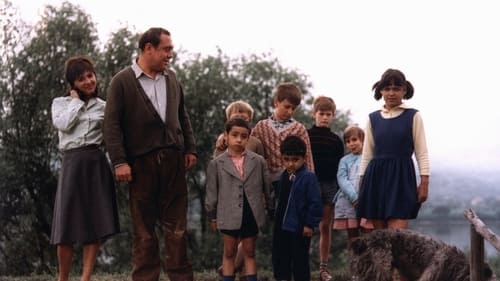
Screenplay
Hungary, 1950s. József Pelikán, who works as a dam keeper on the Danube, meets by chance Zoltán Dániel, an old friend whom he saved from death years before and who is now a powerful politician.

Director
Hungary, 1950s. József Pelikán, who works as a dam keeper on the Danube, meets by chance Zoltán Dániel, an old friend whom he saved from death years before and who is now a powerful politician.

Director

Writer
A brothel in a small Hungarian town becomes the home of a medical student after his favorite working girls find out he's out of rent money. Trouble brews as they learn his mother is coming for a visit and they must transform the house.

Screenplay
Kicsi Dániel, the young virtuoso pianist gets a separate apartment in the ten-storey block of flats. He rehearses all the time, irregularly, day and night, disturbing thus the peace of the dwellers in the thin-walled house. Inquisition begins in the name of equal rights for inhabitants.

Director
Kicsi Dániel, the young virtuoso pianist gets a separate apartment in the ten-storey block of flats. He rehearses all the time, irregularly, day and night, disturbing thus the peace of the dwellers in the thin-walled house. Inquisition begins in the name of equal rights for inhabitants.

Screenplay
This absurd story, bordering on the drawing-room comedy, portrays the practices of abusing power and the insolence of bureaucracy through the revolting of a young designer-engineer of the Railway Tilting Examination Board. The ambitious Pócsik works persevearingly on how to compensate for the tilting of railway carriages in bends. His jealous bosses, however, use their best efforts to block the development of an innovation.

Director
This absurd story, bordering on the drawing-room comedy, portrays the practices of abusing power and the insolence of bureaucracy through the revolting of a young designer-engineer of the Railway Tilting Examination Board. The ambitious Pócsik works persevearingly on how to compensate for the tilting of railway carriages in bends. His jealous bosses, however, use their best efforts to block the development of an innovation.

Screenplay
A musical farce about women in the canning factory. The pretty Brigitta tries to commit suicide, because Laci left her, pregnant, but her mates save her.

Director
A musical farce about women in the canning factory. The pretty Brigitta tries to commit suicide, because Laci left her, pregnant, but her mates save her.

Screenplay
The film is based on a true story. Jakus, managing director of a scooter-factory suddenly resigns, since he disagrees with his superiors in the ministry on several points. Disregarding the attacks of his family and friends, he returns to his original job and becomes a welder, which is not very easy because of his records.

Director
The film is based on a true story. Jakus, managing director of a scooter-factory suddenly resigns, since he disagrees with his superiors in the ministry on several points. Disregarding the attacks of his family and friends, he returns to his original job and becomes a welder, which is not very easy because of his records.

Screenplay
In this naturalistic satire enriched with burlesque, Boróka, the haircutting artist once cuts a hair so, that the customer has to be shaved bald. Sajtár Dezső wants to kill the barber, who feels to be a victim himself immediately. In his anguish he mixes up his apartment, his wife and everything in the uniform world of the block of flats and like a maniac, tries to find after his pursuer. They find each other at a neurological clinic.

Director
In this naturalistic satire enriched with burlesque, Boróka, the haircutting artist once cuts a hair so, that the customer has to be shaved bald. Sajtár Dezső wants to kill the barber, who feels to be a victim himself immediately. In his anguish he mixes up his apartment, his wife and everything in the uniform world of the block of flats and like a maniac, tries to find after his pursuer. They find each other at a neurological clinic.

Screenplay
Mózes Imre, the quality inspector of a big factory in Budapest loses his job overnight because he did not obey the director's instructions and refused some bad products of the company. When he brings the case before a court his arguments are not really appreciated. The director, however, recognises that, to a certain extent, Mózes is right and lets him re-enter as a head of a smaller operational section.

Director
Mózes Imre, the quality inspector of a big factory in Budapest loses his job overnight because he did not obey the director's instructions and refused some bad products of the company. When he brings the case before a court his arguments are not really appreciated. The director, however, recognises that, to a certain extent, Mózes is right and lets him re-enter as a head of a smaller operational section.

Writer
Luca regularly visits her bedridden mother-in-law. Luca's husband, János, has been arrested on a trumped up political charge, and Luca does not know if he is still alive. Luca hides this from his mother by making up letters purporting to be from János who is directing a big film in New York. Luca discovers that János is alive, and is dismissed from her teaching job because of her husband. The dying mother anxiously awaits the return of her son from New York.

Screenplay
The main character of this film reminiscent of political writing is Laci, the young and ambitious factory worker. He lives with his brother's family. After an unsuccessful attempt to escape from his native country and the prison sentence which follows it he gets employed by Pray, the progressive thinker, at a newly established computer centre. It is here that Laci learns to know Anna, the new-leftist university student, daughter of the general manager. Tóth, although he does not favour their relationship, does not oppose it either.

Director
The main character of this film reminiscent of political writing is Laci, the young and ambitious factory worker. He lives with his brother's family. After an unsuccessful attempt to escape from his native country and the prison sentence which follows it he gets employed by Pray, the progressive thinker, at a newly established computer centre. It is here that Laci learns to know Anna, the new-leftist university student, daughter of the general manager. Tóth, although he does not favour their relationship, does not oppose it either.

Script Editor
Epic recalling the early days of the Republic of the councils.

Writer
Laci and the divorced Klári decide to commit suicide, since neither's parents give them shelter, they have no place to sleep, no decent job and no future. Béla, who lives on stealing cars, joins them. He has a gun. Based on a true story.

Director
Laci and the divorced Klári decide to commit suicide, since neither's parents give them shelter, they have no place to sleep, no decent job and no future. Béla, who lives on stealing cars, joins them. He has a gun. Based on a true story.

Screenplay
Komora, a young painter and his friends, Mari, a teacher, and the elderly doctor, Szabó, buy a barrack-building situated at the foot of the stone mine of Badacsony. Earlier, the placeserved as an internment camp. Now, they intend to establish a camp with workshop sessions for fine artists. Mari and the painter fall in love.

Director
Komora, a young painter and his friends, Mari, a teacher, and the elderly doctor, Szabó, buy a barrack-building situated at the foot of the stone mine of Badacsony. Earlier, the placeserved as an internment camp. Now, they intend to establish a camp with workshop sessions for fine artists. Mari and the painter fall in love.

Writer
When András, Albert and Bence are on a cycling tour around Lake Balaton, their dreams come true. Sunshine, beach and pretty girls. András and his younger brother run after the same girl, Eszter. András persuade his brother not to pinch the girl. András pick her up one night and split up with her next day. Eszter follows the boy, but András sends her away...

Director
When András, Albert and Bence are on a cycling tour around Lake Balaton, their dreams come true. Sunshine, beach and pretty girls. András and his younger brother run after the same girl, Eszter. András persuade his brother not to pinch the girl. András pick her up one night and split up with her next day. Eszter follows the boy, but András sends her away...

Screenplay
Kati, a fragile, sixteen-year-old teenager and Sándor, a twenty-two-year-old young man get married defying their parents' and friends' objections. They spend their wedding night in a bunk-house, and then, trusting the strength of their love, they move in a boathouse on the Roman beach of the Danube.

Director
Kati, a fragile, sixteen-year-old teenager and Sándor, a twenty-two-year-old young man get married defying their parents' and friends' objections. They spend their wedding night in a bunk-house, and then, trusting the strength of their love, they move in a boathouse on the Roman beach of the Danube.
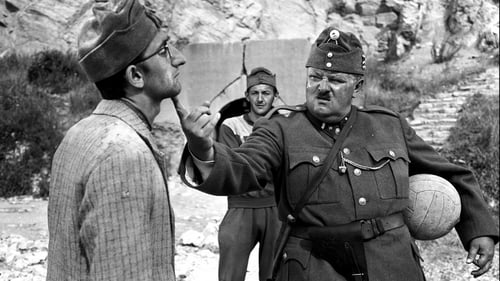
Writer
To celebrate Hitler's birthday, a soccer match is organized between the Germans and prisoners of war.

Screenplay
Merry soldiers arrive in the sleepy Transdanubian town. The cynical woman-hunter, Ferdinándy, learns to know doctor Barlay's beautiful wife at a carnival. She lives a happy married life, and the attentions of the lieutenant are all in vain.

Script Editor
This drama about a boorish non-conformist takes place in Hungary after the war and is dulled a little by political overtones but is still an engaging story. The setting is the countryside, where an independent, landowning farmer busies himself in his free time by bedding down the women on his farm and then tossing them aside. One such ill-treated lass ends up marrying a young man who is in charge of a communal farm, a farm the womanizing "beast" of the title is later forced to join. The arrogant, formerly independent farmer does not reform his ways and is soon chasing after the young manager's wife, the woman he dropped not that long ago. The results are disastrous.

Screenplay
Daddy Kárász, the stakhanovist worker, complains in a television interview about the fact that his family, consisting of many members, cannot get a home on their own. Kéri, the chairman of the local authority, promises to help him on the condition that if he does not, they may move in to his villa at elegant Pasarét. Nothing happens, therefore the Kárász family takes Kéri by his word. From this time on, tumultuous scenes and frequent quarrels take place in the villa between the two families.

Writer
Private inspector Hável happens to travel on the train which is attacked at Biatorbágy. His attention is drawn to a suspicious man, and in the next few days he confirms that it was indeed him who committed the crime. Yet the police accuses not the lunatic Marschalkó but the communists. Summary justice is declared.

Screenplay
If there has ever been pure and undestroyable love, this is it. That is how Imre and Vera feel. The talented chemist loses his best friend for the girl's sake, then gives up his profession, only to be able to stay in the capital with Vera. But the young actress at the beginning of her career is neglected. Imre accepts an uninteresting, but well-paying position. They seem to be happy together.

Writer
The young maid, Anna starts to work for the noble Vizy family. Mrs Vizy is proud of the hard-working servant but doesnt treat her well. Her nephew seduces Anna with sweet words, but when leaves her as soon as she gets pregnant. The humiliations of Anna finally lead to a tragic ending.

Writer
The flat of Doctor Bartha is wetting, the Communal Management Enterprise does not act, the doctor and his wife are at the edge of divorce. Géza would marry his colleague, Kató, but mum is sick, the apartment is small, no money. Uncle Károly is fed up with unsuitable, charlatan business managers. Vali would marry, in order not to live on Titi and Piri any more, but the selected man wants to have a woman with her own apartment. All of them have a chance by the lottery, especially by hitting twelve scores.
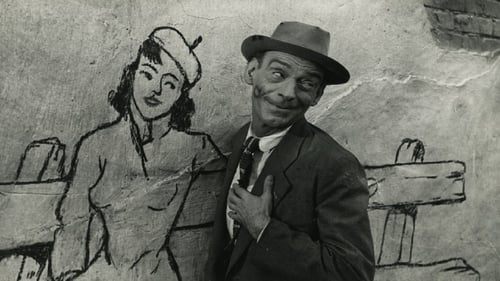
Writer
On the Spring of 1945 the Jackson circus is heading towards the border with the clown Peti and Aida, the elephant. They have to play for the Hungarian Fascists, while Peti is hiding the Jew Annuska and Sanyika.

Writer
Venice Film Festival 1954
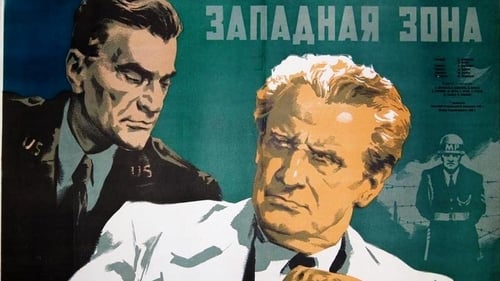
Writer
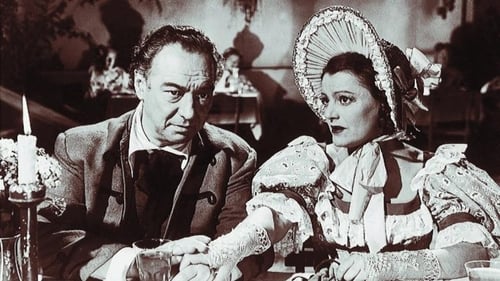
Screenplay
The story, which takes place in the reform era, centres around Mrs. Déry, a legendary actress, who, along with her fellow actors and actresses, travels around the country to become the herald of the Hungarian language, performing in villages and towns up and down the land as strolling players, a woman who is not put off by the prospect of starvation and the dearth of a home to return to and security to live in.

Writer
A female worker in Socialist Hungary gains the acceptance of her male colleagues.

Script Editor
1944. A band of runaways and orphans of the war scour the countryside in search of food and shelter. They invade and then taken in by a musician and former concert pianist who’s hiding out in a ruined castle. After the initial altercation between them the gang accepts his guidance and he wins their respect by protecting them from the elements.









